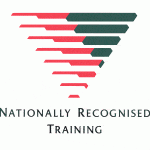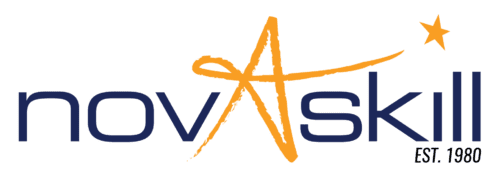Make food safety a priority in your business!
Short Courses
NSW Food Safety Supervisor Certificate
SITXFSA005 Use hygienic practices for food safety
SITXFSA006 Participate in safe food handling
Everyone who works in a food business is responsible for the delivery of safe food to the customer.
When referring to food safety in Australian food businesses, the ownership is placed solely on the business itself. It must ensure that all food handled and prepared in the business is safe to eat. In order to help the food business fulfil this obligation, most are required to employ a trained Food Safety Supervisor. This type of regulation is in place so that staff have the relevant skills and knowledge to safely handle food in their roles. This course is designed for supervisors to understand the requirements around handling food safely and knowing how to supervise other staff to do the same.
NSW Food Safety Supervisor Certificate (FSS)
On successful completion of this course participants will receive a NSW Food Safety Certificate recognised by NSW Food Authority and a statement of attainment issues by Novaskill for the two national recognised units of competency in this course.
The Food Act 2003 requires that the FFS Certificate is renewed every 5 years. Students seeking to recertify must renew a NSW FSS certificate that is due to expire, or has expired, within the immediately preceding 90 days. After this time, the entire course must be re-completed to attain certification. Ask for more details.
NSW RTO approval number 24284
This course can be completed face to face in our branch over two full days, or self-paced in your own time (however does require an observation so you will need to attend a branch to complete).


Who should complete FSS training?
FSS training may apply to;
- cafe and restaurant owners
- wait staff
- chefs
- kitchen hands
Delivery
This course is delivered in a classroom environment with theoretical and practical components, or self-paced.
Duration
This course is generally delivered face to face over 2 full days or self-paced a home with a mandatory observation (to take place in our branch on a pre-arranged arranged date).
Price
Speak to your local Novaskill branch pricing for this course. Discounts may apply for multiple student enrolments.
Units of Competency
SITXFSA005 Use hygienic practices for food safety & SITXFSA006 Participate in safe food handling.
Work Placement
This qualification does not require work placement however you need to be working in the food industry to be able to complete the assessment requirements. Ask for more details.
Pre-requisites
There are no pre-requisites for this course.
Student Support
Friendly support, advice and assistance is provided by our teaching staff and Student Services Division to all students.
Pathways
Many students that complete their NSW FSS Certificate also choose to complete an RSA and RCG. For those working in hospitality, completing SIT30622 Certificate III in Hospitality is also extremely advantageous.
Awarded by
HGT Australia Ltd. trading as Novaskill RTO Code: 6996.
General information about this course
SITXFSA005 Use hygienic practices for food safety
This unit describes the performance outcomes, skills and knowledge required to use personal hygiene practices to prevent contamination of food that might cause food borne illnesses. It requires the ability to follow predetermined organisational procedures and to identify and control food hazards.
The unit applies to all organisations with permanent or temporary kitchen premises or smaller food preparation or bar areas. This includes restaurants, cafes, clubs, hotels, and bars; tour operators; attractions; function, event, exhibition and conference catering; educational institutions; aged care facilities; correctional centres; hospitals; defence forces; cafeterias, kiosks, canteens and fast food outlets; residential catering; in-flight and other transport catering.
It applies to food handlers who directly handle food or food contact surfaces such as cutlery, plates and bowls during the course of their daily work activities. This includes cooks, chefs, caterers, kitchen stewards, kitchen hands, bar, and food and beverage attendants, and sometimes room attendants and front office staff. Food handlers must comply with the requirements contained within the Australia New Zealand Food Standards Code. In some States and Territories businesses are required to designate a food safety supervisor who is required to be certified as competent in this unit through a registered training organisation.
SITXFSA006 Participate in safe food handling
This unit describes the performance outcomes, skills and knowledge required to handle food safely during the storage, preparation, display, service and disposal of food. It requires the ability to follow predetermined procedures as outlined in a food safety program.
The unit applies to all organisations with permanent or temporary kitchen premises or smaller food preparation areas. This includes restaurants, cafes, clubs, and hotels; tour operators; attractions; function, event, exhibition and conference catering; educational institutions; aged care facilities; correctional centres; hospitals; defence forces; cafeterias, kiosks, canteens and fast food outlets; residential catering; in-flight and other transport catering.
Safe food handling practices are based on an organisation’s individual food safety program. The program would normally be based on the hazard analysis and critical control points (HACCP) method, but this unit can apply to other food safety systems.
It applies to food handlers who directly handle food during the course of their daily work activities. This includes cooks, chefs, caterers, kitchen hands and food and beverage attendants.
Food handlers must comply with the requirements contained within the Australia New Zealand Food Standards Code.
In some States and Territories businesses are required to designate a food safety supervisor who is required to be certified as competent in this unit through a registered training organisation.
Food safety legislative and knowledge requirements may differ across borders. Those developing training to support this unit must consult the relevant state or territory food safety authority to determine any accreditation arrangements for courses, trainers and assessors.
NSW Food Safety Supervisor Certificate (FFS)
In addition to these units, this course includes key focus areas determined by the NSW Food Authority. As of June 2024, the mandatory key focus areas are:
- Allergen Management
- Safe Egg Handling
- Cleaning and Sanitising Practices
- Food Act Offences.

When you’ve successfully completed your training, you’ll receive a Statement of Attainment issued by Novaskill and a NSW Food Safety Supervisor Certificate recognised by the NSW Food Authority.

